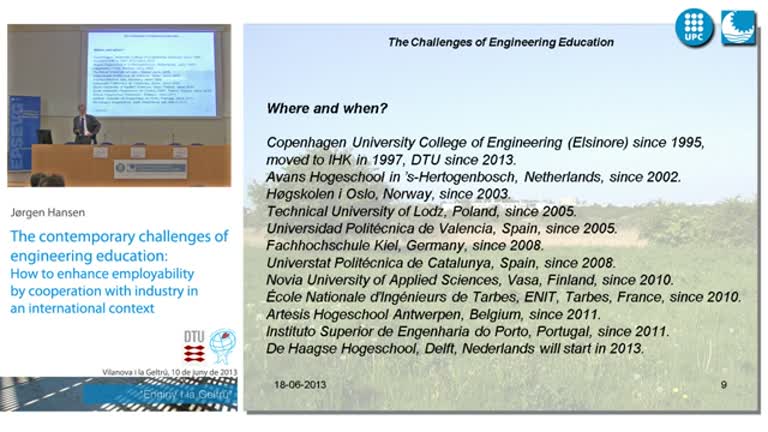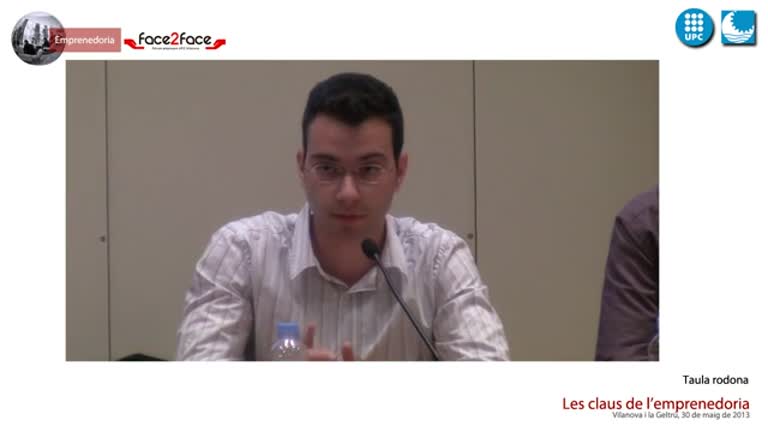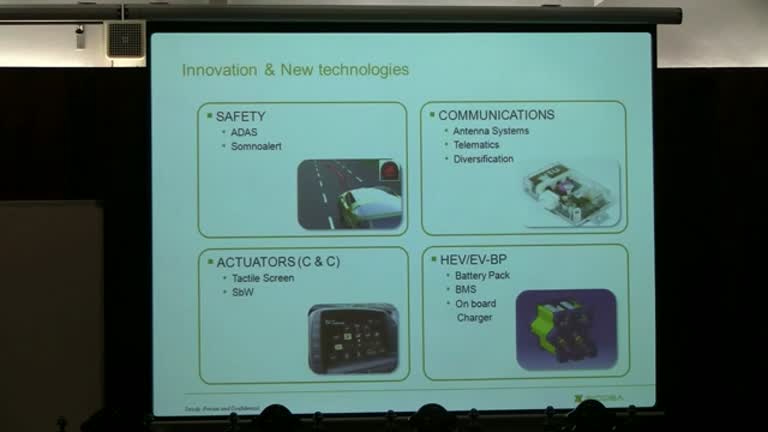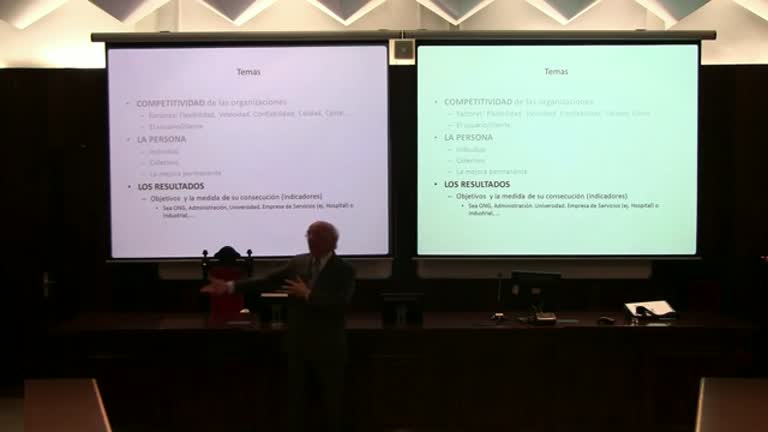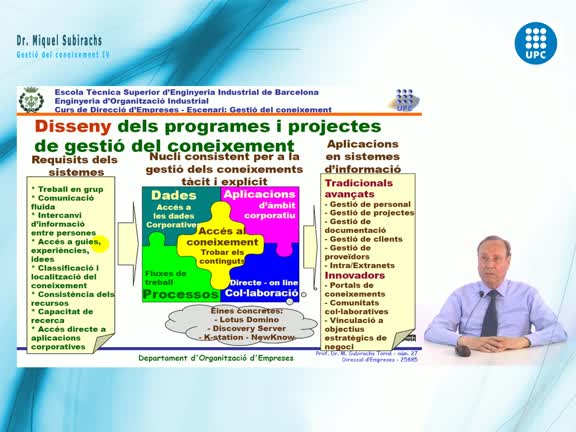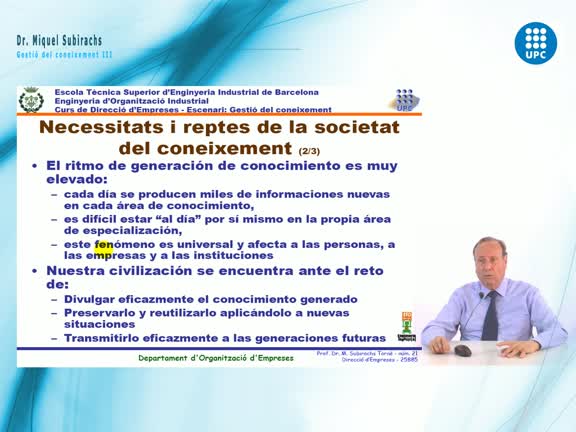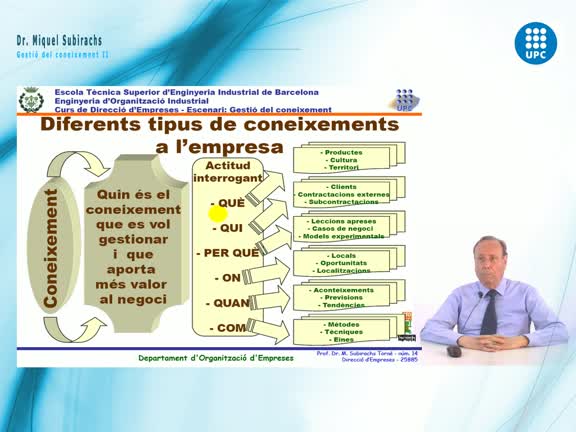Objectes multimèdia amb l’etiqueta: Economia i organització d'empreses
Resultats de la cerca
Els valors en el disseny : Honest Strategy
Accés obert
21 de nov. 2013
Héctor Robles promou un nou model de fer, batejat com Honest Strategy, que unifica l'estratègia de negoci, la innovació centrada en les persones i la gestió de la cultura d'empresa. Es tracta d'un model de transformació que s'aplica a les organitzacions perquè puguin assolir felicitat, èxit i sostenibilitat a través de l'honestedat. L'ha experimentat (totalment o en part) a empreses com Caser, Connectia, Axel Springer, FabLab o Lékué (últim Premi Nacional d'Innovació i Disseny ), entre altres.
Transnacionales y Derechos Humanos
Accés obert
14 de nov. 2013
Conferència de Jesús Carrión, economista, Professor a l’ETSEIB i membre del col·lectiu RETS. Analitza amb exemples les maneres com, sota el criteri bàsic de la maximització de beneficis, les empreses transnacionals trepitgen en molts casos els drets humans de milions de persones al món.
Conferència organitzada per ESFA, Espai Social i de Formació d'Arquitectura, dins el cicle "Contexto General"
Conferència organitzada per ESFA, Espai Social i de Formació d'Arquitectura, dins el cicle "Contexto General"
Economía y sociedad: ¿Dónde estamos? ¿Hacia dónde nos dirigen?
Accés obert
7 de nov. 2013
Conferencia de Miren Etxerreta, Doctora en Economia i membre del Seminario de Economía crítica TAIFA per al cicle organitzat per ESFA, Espai Social per la Formació en Arquitectura.
Conferència organitzada per ESFA, Espai Social i de Formació d'Arquitectura, dins el cicle "Contexto general"
Conferència organitzada per ESFA, Espai Social i de Formació d'Arquitectura, dins el cicle "Contexto general"
[Innova Days 2013] Sense4Care: Experiencia en la creació d’Spin off en tecnología asistencial
Accés obert
28 de juny 2013
The Contemporary challenges of engineering education: How to enhance employability by cooperation with industry in an international context
Accés obert
10 de juny 2013
En aquesta quarta conferència del cicle Enginy i la Geltrú, el professor Jørgen Hansen, explica els orígens de l’European Project Semester (EPS), la necessitat d’incoporar l’empresa dins del programa educatiu amb peculiaritats que el converteixen en un dels programes educatius internacionals de major èxit. Estudiants de diferents nacionalitats formen equips multidisciplinars per desenvolupar un projecte d'enginyeria en col·laboració entre la universitat i l'empresa. L'idioma de treball és l'anglès i l'objectiu és que els estudiants realitzin l'últim semestre dels seus estudis d'enginyeria en un entorn professional real, per tal de formar-los en les capacitats que avui en dia necessiten les empreses. Aquest programa s'està duent a terme al Campus de la UPC a Vilanova i la Geltrú des del curs 2007-2008 amb un creixent nombre de projectes i empreses col·laboradores.
Today, Europe is facing big problems because the international competition is harsher than ever. As a result, unemployment has increased significantly, especially for young people.
Technology is more complex than ever, and it can be difficult to motivate young people to the hard work that is needed for an engineering education.
Consequently, learning methods have become important. Problem based learning, project organized learning and group work can motivate many students and also give them competences that increase their employability.
A close cooperation with industry can also be motivating for students and can also enhance their employability. Students will usually become motivated when they see that their project is a “real” project. Companies get an opportunity to observe students and consequently, it is less risky to employ them. Students can learn something about the culture in various companies, which also can enhance their employability. For some companies, the cooperation with higher educational institutions (HEIs)can boost the development of new products, and in many cases the resources of companies and HEIs will create a synergy. It is also important for HEIs to know what is going on in companies, and many new engineers find their first job thanks to connections between companies and HEIs. Because all big companies today have to operate internationally, it is also important that engineering students acquire international competences during their education.
European Project Semester, EPS, combines all the virtues mentioned above. EPS started in Denmark in 1995, and thanks to its success, it has spread to 11 other universities or engineering schools in Finland, Norway, Germany, Poland, Netherlands, Belgium, France, Portugal and Spain, among those Escola Politècnica Superior d'Enginyeria de Vilanova i la Geltrú (Universitat Politècnica de Catalunya). EPS is a semester for engineering students, who are working on realistic, often interdisciplinary projects in international teams. Most of the projects are done in cooperation with industry. More than 1500 students from 38 countries have attendet EPS in Denmark, and the experience is very positive.
Today, Europe is facing big problems because the international competition is harsher than ever. As a result, unemployment has increased significantly, especially for young people.
Technology is more complex than ever, and it can be difficult to motivate young people to the hard work that is needed for an engineering education.
Consequently, learning methods have become important. Problem based learning, project organized learning and group work can motivate many students and also give them competences that increase their employability.
A close cooperation with industry can also be motivating for students and can also enhance their employability. Students will usually become motivated when they see that their project is a “real” project. Companies get an opportunity to observe students and consequently, it is less risky to employ them. Students can learn something about the culture in various companies, which also can enhance their employability. For some companies, the cooperation with higher educational institutions (HEIs)can boost the development of new products, and in many cases the resources of companies and HEIs will create a synergy. It is also important for HEIs to know what is going on in companies, and many new engineers find their first job thanks to connections between companies and HEIs. Because all big companies today have to operate internationally, it is also important that engineering students acquire international competences during their education.
European Project Semester, EPS, combines all the virtues mentioned above. EPS started in Denmark in 1995, and thanks to its success, it has spread to 11 other universities or engineering schools in Finland, Norway, Germany, Poland, Netherlands, Belgium, France, Portugal and Spain, among those Escola Politècnica Superior d'Enginyeria de Vilanova i la Geltrú (Universitat Politècnica de Catalunya). EPS is a semester for engineering students, who are working on realistic, often interdisciplinary projects in international teams. Most of the projects are done in cooperation with industry. More than 1500 students from 38 countries have attendet EPS in Denmark, and the experience is very positive.
Les Claus de l'emprenedoria
Accés obert
30 de maig 2013
Taula rodona duta a terme dins el marc de l'edició del Face2Face 2013 a l'EPSEVG.


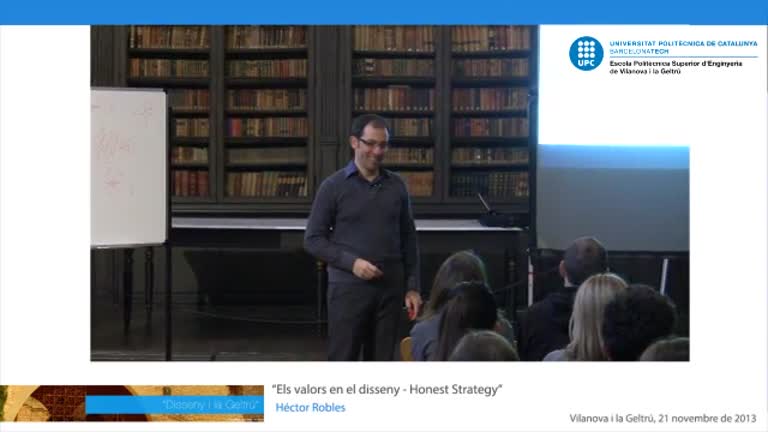
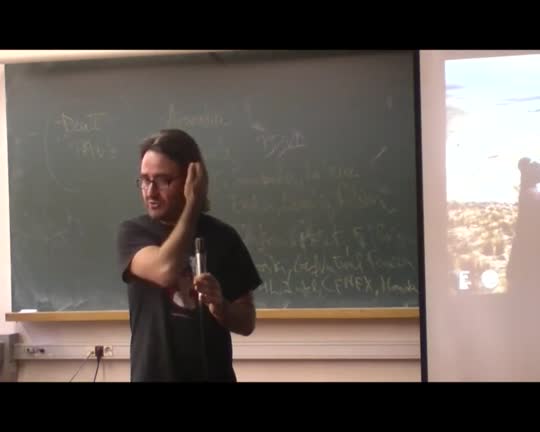
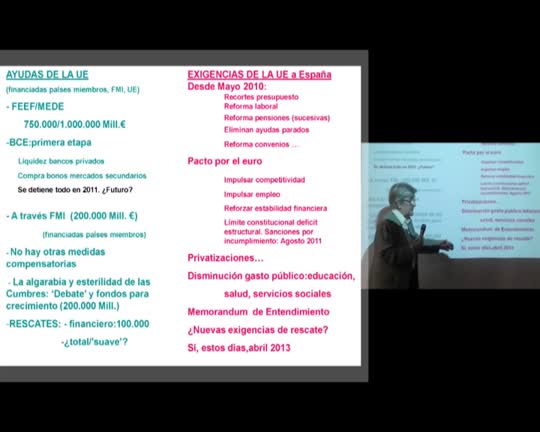
![[Innova Days 2013] Sense4Care: Experiencia en la creació d’Spin off en tecnología asistencial](/uploads/pic/series/6040bd459e8fe0003f5a4fbd/video/6042f0859e8fe01d5925b7b8/21030640635.jpg)
![[Innova Days 2013] Emprendimiento y diseño, la experiencia en HP](/uploads/pic/series/6040bd459e8fe0003f5a4fbd/video/6042f05a9e8fe01d5925b7a6/21030640336.jpg)
